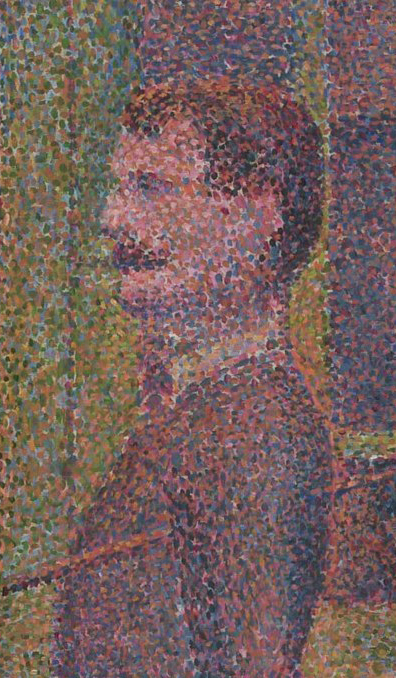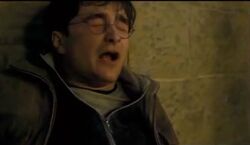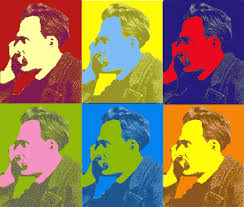Asking someone whether they are "called to singleness" or "called to celibacy" definitely makes my list of Top Ten Pet Peeves of Christian Culture (for a few hundred more of my pet peeves, check out the
Stuff Christian Culture Likes blog). Not long ago I got into a conversation with a girl after our small group meeting that went like this:
Girl: "So, are you dating anyone?"
Me: "Nope."
Girl: "So, you're not looking to date?"
Me: "Since when are those the only options??!"
Not long afterwords, the leaders of that same small group passed out a spiritual gifts survey, which each of us was supposed to pray about, complete, and share with them. One of the gifts listed was
Celibacy, defined as "the special ability that God gives to some members of the Body of Christ to remain single and enjoy it; to be unmarried and not suffer undue sexual temptations." First of all,
special ability? Ha! I've had the special ability to remain single my whole life without even trying! As for enjoying it - well, it has its moments. Second of all, what qualifies as
undue sexual temptation? Sure, if I looked at porn all day or thought of nothing but sex it might be a sign that I wasn't content in my singleness. But what about noticing cute boys on the subway? An affinity for Jane Austen novels? Craving a good cuddle now and then?
To my utter horror, Celibacy ranked relatively high on my list of God-given gifts once I tallied the numbers. I decided to look up the verses that were cited as evidence that singleness was, indeed, a so-called "spiritual gift". The first was Matthew 19:9-12:
I tell you that anyone who divorces his wife, except for marital unfaithfulness, and marries another woman commits adultery." The disciples said to him, "If this is the situation between a husband and wife, it is better not to marry." Jesus replied, "Not everyone can accept this word, but only those to whom it has been given. For some are eunuchs because they were born that way; others were made that way by men; and others have renounced marriage because of the kingdom of heaven. The one who can accept this should accept it.
In other words, if you can't be monogamous, don't get married. If you're already a eunuch, make the most of it. And if you have renounced marriage because God is your lover (aka the religious life), good for you - that's one less sin to worry about. The second passage from Paul is more well known (1 Corinthians 7:5-9):
Do not deprive each other except by mutual consent and for a time, so that you may devote yourselves to prayer. Then come together again so that Satan will not tempt you because of your lack of self-control. I say this as a concession, not as a command. I wish that all men were as I am. But each man has his own gift from God; one has this gift, another has that. Now to the unmarried and the widows I say: It is good for them to stay unmarried, as I am. But if they cannot control themselves, they should marry, for it is better to marry than to burn with passion.
Paul
does undeniably name staying single as a "gift from God" here. He also says that Satan likes to use our lack of self control to tempt us, and that "coming together" with your spouse (sex outside of marriage is not an option) can hold the devil off. (Insert mental image of God crooning The Beatles'
"Come together, right now, over me" with Paul fittingly on bass, John the Baptist with backup guitar, and Jesus on the drums.) Marriage and sex, according to Paul, are a "concession" allowed to those who would otherwise disrupt the kingdom-building effort by being perpetually twitterpated and "burning with passion".
This still leaves some of us stuck between a rock and a hard place. At this particular moment, I am not necessarily "burning with passion," per se. I can't even remember the last time a guy asked me to dinner. But if a good-looking gentleman called me tomorrow wondering if I'd be up for a boat ride on Lake Michigan followed by a picnic, dancing, and a walk under the stars, would I be obligated to turn him down because Celibacy ranked highly on my spiritual gifts survey? Heck NO (says my gut)! Thankfully some of my favorite Christian thinkers back up my gut (who is nevertheless a trusted theologian) by describing some different ways to think about singleness and calling.
Lauren Winner, in her fabulous book,
Real Sex, which everyone must read, writes this on the subject:
Perhaps we ought not to fixate on the call to lifelong singleness. Some people, of course, are called to lifelong singleness, but more of us are called to singleness for a spell, if even a very long spell. Often, our task is to discern a call to singleness for right now, and that's not so difficult. If your are single right now, you are called, right now, to be single – called to live single life as robustly, and gospel-conformingly, as you possibly can. The problem comes when the assumption that these are lifelong callings creeps in – panicked single folks think they must discern, at some given age on some given date, whether or not they are called to singleness forever. Again, consider professional callings. We are often called to certain vocational or professional paths for periods of time – one is called to be a doctor or a teacher or a waitress, but to discern a call to go to dental school at age twenty-four is not to assume that one will be called to work as a dentist forever. Perhaps at thirty-five, one will be called to stay home with small children. Perhaps at forty, one will be called to open a stationery store. Perhaps at sixty-three, one will be called to retire. Indeed, even calls to marriage are often not lifelong – not because of divorce, but because of death. Jane may be called to be married to Peter right now, but if Peter dies, she will find herself called, for a season, to singleness – to widowhood. (139)
Aaaah. What a refreshingly sane thought. Of course callings and gifts come and go! We are dynamic individuals, responding to constantly shifting circumstances, and God made us that way. Things are rarely as black and white as some would have us believe. (DELETE any mental images of God as Michael Jackson.) Even Shane Claiborne - who wrote in
The Irresistible Revolution that God was his lover and that "We can live without sex, but we can't live without love, and God is love" - later adopted Winner's language about "seasons of calling" when he found himself with a serious girlfriend. The change in his relationship status didn't render his earlier words untrue, but it definitely added some shades of gray to his understanding of 1 Corinthians 7 and Matthew 19.
Speaking on a "Singles in Ministry" panel at a conference, Claiborne also suggested asking yourself this question:
What will allow me to pursue Jesus with the least distractions? This, if you ask me, is a very helpful flip-flop of questions like
Do I suffer undue sexual temptations? or
Is this burning passion allowing Satan to tempt me? Instead, we should be asking how we can best glorify God in our current situation. Singleness, like marriage, is not a sentence to be dreaded or endured. It is a lens through which God shows us - in part - the character of the Divine. In another delicious (albeit long) passage from her book, Lauren Winner writes:
Of course, premarital abstinence is different from fasting, because when you fast you know you will eat again. Premarital abstinence is different from keeping vigil, because during your vigil you can be confident that you will sleep again. Unmarried Christians have no guarantee that they will ever get married. They have no guarantee of licit sex. Thus to practice premarital chastity is at times to feel as if you are being forever forbidden the satisfaction of a normal appetite […] Of course, the desire for sex is normal and natural, but many spiritual disciplines center on refraining from something normal. One who keeps vigil is abstaining from sleep in order to abide with God; one who fasts is abstaining from food in order to see that one is truly hungry for God; one who spends time alone forgoes the company of others in order to deepen a conversation with God; one who practices simplicity avoids luxury in order to attend more clearly to God. And the unmarried Christian who practices chastity refrains from sex in order to remember that God desires your person, your body, more than any man or woman ever will. With all aspects of ascetic living, one does not avoid or refrain from something for the sake of rejecting it, but for the sake of something else. In this case, one refrains from sex with someone other than one's spouse for the sake of union with Christ's Body. That union is the fruit of chastity. (128-129)
So, there you have it. If "real sex" is union with Christ's Body, the chaste among us are one step ahead of the crowd. And if one more person decides that I either need prayer for a nice husband or the calling card for the local convent, I've got an answer ready for them: I'm called to singleness...until I'm not. I'm fasting from sex...for now. I'm pursuing the path of the least distraction in an attempt to follow Christ.
I believe that God will always provide the tools to carry out his will. That means if I'm meant to be single, he'll satisfy my hunger for love, and if I'm not...he'd better introduce me to Mr. Right! Mr. Right, if you are out there, I leave you with these words of a song by Alexi Murdoch:
So if I stumble, and If I fall
And if I slip now, and loose it all
And if I can't be, all that I could be
Will you? Will you wait for me?














